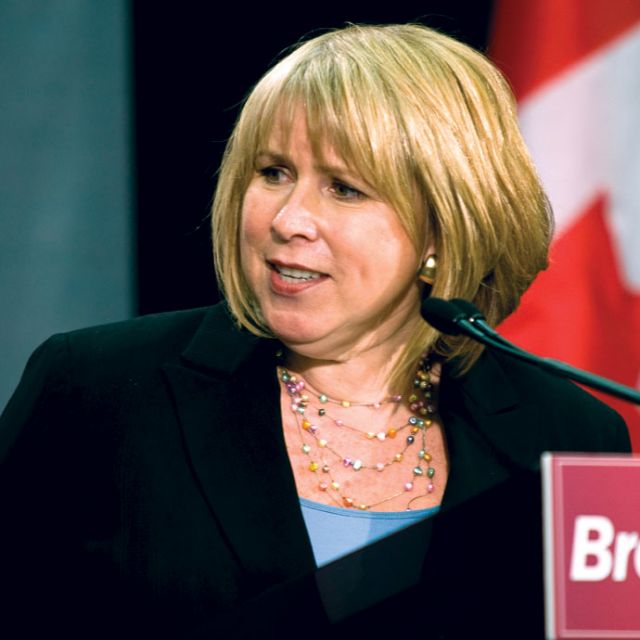As of June 30 last year Citizenship and Immigration Canada imposed new, far-reaching limits on the Interim Federal Health Plan, rendering many refugees and refugee applicants either ineligible for health coverage or insured for only a limited menu of services.
Since then, St. Joseph’s Health Centre on the southern edge of Toronto’s Parkdale neighbourhood has written off $111,629.80 in costs for 736 patient visits for people who would have otherwise been insured by the IFHP, while St. Michael’s Hospital in the heart of downtown has spent $62,416 to cover 132 patient visits.
“It’s not so much the (dollar) number as the people affected,” said St. Michael’s Hospital Inner City Health program director Jim O’Neil.
It should be no surprise Catholic hospitals are treating refugees for free, said Ron Marr, Catholic Health Association of Ontario executive director.
“Catholic hospitals, by and large, part of their mission is to treat the most vulnerable around. Very often refugees fall into the group,” Marr said.
The obligation to provide care without regard to insurance or ability to pay is written right into the new Catholic Health Alliance of Canada’s Health Ethics Guide, said CHAC executive director James Roche.
“That’s always been our position,” said O’Neil. “That was the Sisters’ (of St. Joseph) original mission when they set up the hospital.”
Though the total seems small, it’s still a loss and one large enough to pay a full-time salary for support staff, he said. The Ontario Ministry of Health expects all hospitals to balance their books and does not increase funding to cover losses.
“Naturally, we will explain to auditors and the Ministry that there is this loss,” O’Neil said.
St. Joseph’s makes the same commitment to treat refugee patients.
“St. Joseph’s Health Centre serves people regardless of their IFHP status,” said chief of staff Dr. Ted Rogovein in a statement released to The Catholic Register. “We are committed to providing patient-centred care to all of our patients, and should an issue about insurance coverage arise we will work with them in a manner that reflects our universal values of respect, dignity and compassion.”
It would be speculation to say whether or not St. Michael’s Hospital expects the bill for uninsured refugees to grow, said O’Neil. But there is a scenario that worries him.
“People may be staying away because they’re not covered to the point where they have to seek care eventually — in which case we would see an increase,” he said.
Ontario Health Minister Deb Matthews said she’s still hoping the federal government will reverse the IFHP cuts.
“We view this move as a serious abdication of their responsibility towards some of the most vulnerable people in our society,” said Matthews.
The cuts have fallen disproportionately on Ontario, and particularly Toronto, which hosts the largest numbers of refugees and refugee claimants.
For now emergency rooms and community health centres remain options for refugees in need of care, said Matthews.
“Our health care system will not turn away those in need of emergency medical treatment,” she said.
But any decision about picking up costs hospitals are currently absorbing has yet to be made.
“We continue to consider options available to the provincial government to mitigate the effects of this decision,” Matthews said.
Citizenship and Immigration claims the cuts to refugee health insurance were necessary.
"In 2012, Changes were made to the IFHP, in part, because the program had expanded over time beyond its original intent, both in terms of benefits and eligibility," said a CIC spokesperson in an email. "This led to a reassessment of the program and reforms to ensure that most IFHP beneficiaries do not generally receive tax-payer funded benefits that are more generous than those provided to Canadians."
The idea that were getting better health coverage than Canadians is false, said St. Michael's Hospital chief of family and community medicine Dr. Phil Berger.
"It is absolutely, unambiguously a false statement. There's no debate about it," Berger said. "The care they got was equivalent to that provided to people on social assistance across Canada."

